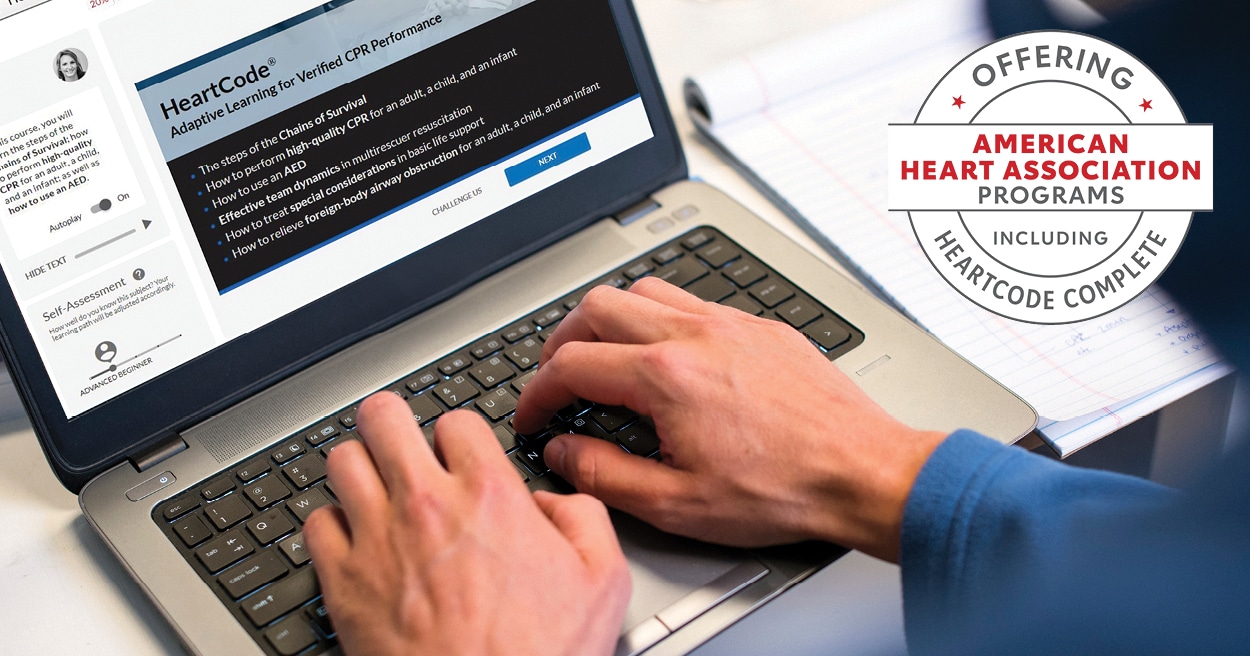American Heart Association© PALS Certification Classes in Livermore

American Heart Association© PALS
Course Name: PALS Pediatric Advanced Life Support (Initial or Renewal)
Online Course Length: 3-4 hours (At your home.)
Skills Testing: 30-40 minutes (At one of our over 55 testing sites.)
Price: $290 (This includes the online PALS course, skills testing, & PALS card.)
Certification: American Heart Association© PALS certification card.
When: PALS classes are offered Monday – Sunday from 7 am to 6 pm
Card Issuance: You will receive the PALS certification card on day of class.
Add ons available: ACLS, BLS, First-aid, Opioid, or Bloodborne Pathogens
Low Price Guranetee: Lowest Prices in Northern CA. Price matching policy.
View PALS Courses in Livermore & Other Cities Near You
Registration
Click on a City Link Below to View American Heart Association PALS courses near you. NOTE: If the dates and times do not work, call us. You can choose a date and time.
Alameda County: Alameda, Berkeley, Dublin, Fremont, Hayward, Livermore, Newark, Oakland (Fruitvale), Oakland (Piedmont), Pleasanton, San Leandro
Contra Costa County: Antioch, Brentwood, Concord, Danville, Martinez, Pleasant Hill, San Pablo, San Ramon, Walnut Creek
Marin County: San Rafael
Napa County: Napa
Placer County: Rocklin, Roseville
Sacramento County: Carmichael, Citrus Heights, Elk Grove, Folsom, Sacramento
San Francisco County: Bayshore, Mission Bay, Nob Hill, Sunset
San Joaquin County: Stockton, Tracy
San Mateo County: Daly City, Millbrae, Redwood City, San Mateo
Santa Clara County: Campbell, Los Gatos, Milpitas, Morgan Hill, Palo Alto, San Jose (Downtown), San Jose (Willow Glen), Santa Clara, Sunnyvale Santa Cruz County: Santa Cruz
Solano County: Fairfield, Vacaville, Vallejo
Sonoma County: Petaluma, Santa Rosa
Stanislaus County: Modesto
Yolo County: Davis, Woodland
Enhancing Pediatric Care: American Heart Association PALS Classes in Livermore
Pediatric Advanced Life Support (PALS) classes offered by the American Heart Association (AHA) in Livermore, California, are designed to provide healthcare professionals with the knowledge and skills necessary to effectively manage pediatric emergencies. This article explores the importance of PALS training, the offerings of the American Heart Association in Livermore, and the impact these classes have on healthcare providers and the community.
Understanding the Importance of PALS Training
Pediatric emergencies require specialized care and management techniques due to the unique needs of children. PALS training focuses on the assessment and treatment of critically ill or injured children, including those experiencing respiratory failure, shock, or cardiac arrest. By providing healthcare professionals with the knowledge and skills needed to recognize and respond to these emergencies, PALS training improves patient outcomes and saves lives.
The American Heart Association’s Commitment to Pediatric Care
The American Heart Association is a global leader in cardiovascular research, education, and advocacy. The AHA’s PALS courses in Livermore are taught by certified instructors who adhere to the latest AHA guidelines and use state-of-the-art training equipment. The AHA also provides ongoing support and resources to help healthcare professionals maintain their PALS certification and stay up-to-date with advances in pediatric care.
Comprehensive Offerings of PALS Classes in Livermore
PALS classes in Livermore are designed for healthcare professionals who care for children in a variety of settings, including emergency departments, pediatric wards, and intensive care units. The curriculum covers a wide range of topics, including pediatric assessment, basic life support (BLS) CPR, airway management, and pharmacology.
Participants in PALS classes engage in hands-on practice and simulation-based learning, allowing them to apply their knowledge and skills in realistic scenarios. This interactive approach helps healthcare professionals develop confidence in their ability to manage pediatric emergencies effectively.
Impact of PALS Classes on Healthcare Providers and Patient Care
The impact of PALS classes in Livermore extends beyond the classroom—it directly influences the quality of patient care provided by healthcare professionals. PALS-certified providers are better equipped to assess and treat critically ill or injured children, leading to improved patient outcomes and increased survival rates.
Furthermore, PALS training fosters a culture of collaboration and teamwork among healthcare providers. By emphasizing effective communication and coordination, PALS classes help healthcare teams work more cohesively during pediatric emergencies, ultimately benefiting patient care.
Conclusion
In Livermore, California, American Heart Association PALS classes play a vital role in enhancing the skills and confidence of healthcare professionals in managing pediatric emergencies. By providing comprehensive training in pediatric advanced life support, these classes contribute to improved patient outcomes and the overall quality of pediatric healthcare in the community. Through education, collaboration, and innovation, the AHA and its partners in Livermore are making a difference in pediatric care, ensuring that healthcare professionals have the knowledge and skills needed to provide the best possible care for children in need.
FAQs
Who should attend PALS certification classes in Livermore?
PALS certification classes are primarily designed for healthcare professionals who are involved in the management of pediatric patients, including pediatricians, emergency physicians, nurses, paramedics, and respiratory therapists.
How long does a PALS certification course typically last?
PALS certification courses usually span over two days, with a combination of didactic instruction, skills practice, and simulated scenarios to ensure comprehensive learning and skill mastery.
Is there a renewal requirement for PALS certification?
Yes, PALS certification is typically valid for two years, after which healthcare professionals are required to undergo PALS renewal courses to maintain their certification.
